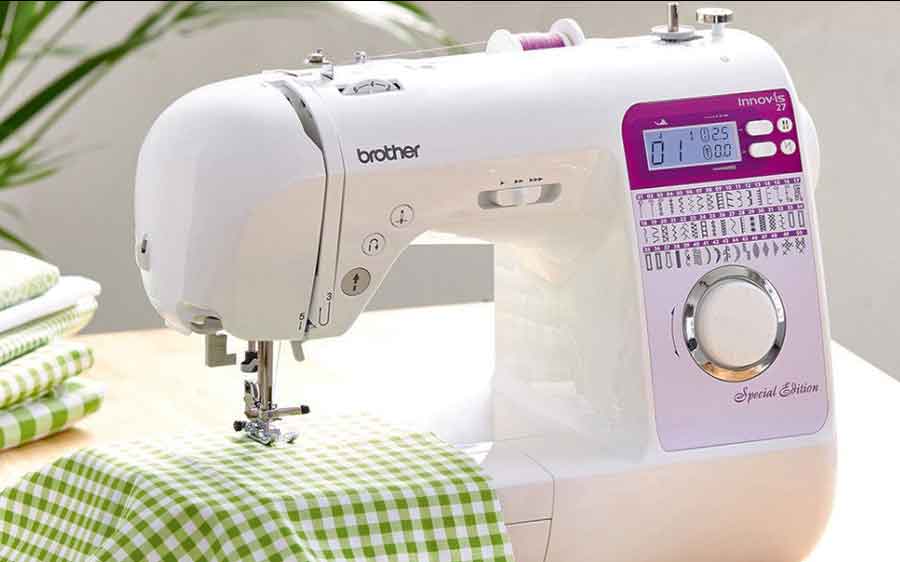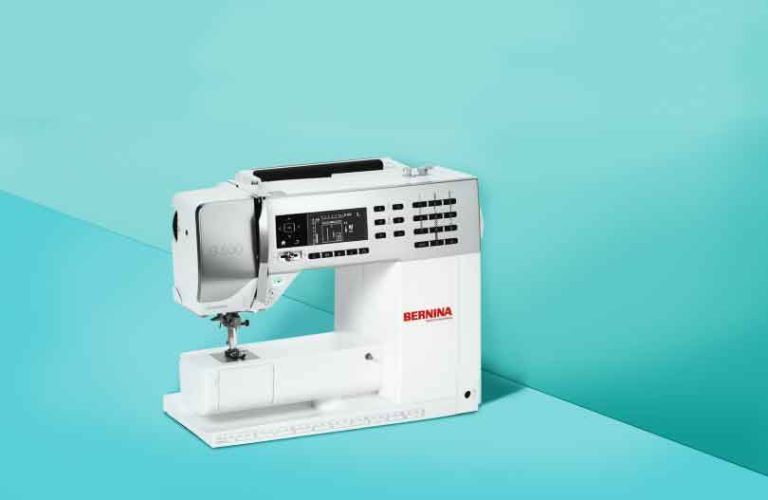Sewing machines are one of the most useful appliances in a home. There are a lot of sewing machines out there, but not all of them will meet your needs.
You should consider the type of fabric you want to sew and the specific functions you need your machine to perform before purchasing one.
If you’re still unsure about which sewing machine is right for you, check out our blog post below for more details!
There are so many options available in the market and even after deciding on the model, choosing accessories can be a challenge.
If you are looking to buy a new sewing machine, there are several things you should consider before buying a sewing machine.
In fact, many people who own a sewing machine fail to realize the benefits they are getting until it is too late.
- What kind of needle will give you the best quality of stitches?
- What size presser foot should you get?
- What size throat plate should you get?
- Choose your fabric wisely before buying a sewing machine.
- Do you need a machine that can perform multiple functions?
- Do you need a machine that is sturdy and can stand up to the wear and tear of daily use?
- How much experience do you have sewing? Will you be using the machine mostly for fun or for work?
Sewing machines are broadly categorized by motor type: Mechanical, Electronic and Computerized.
Let’s examine each of the points mentioned above one at a time.

1. What kind of needle will give you the best quality of stitches?
There are three basic types of needles you can use they are wooden needles, Plastic needle and Steel needles.
Wooden Needles: These are the cheapest type of needles you can buy and they are made out of wood.
Obviously, they will dull down very quickly and a sharpening kit is needed to keep them in good working order.
Plastic Needles: Made out of plastic or nylon, these are by far the most common type of sewing needles used by amateurs and experts alike.
They are very affordable and last a long time. But, they will need to be replaced eventually.
Steel Needles: These are the most expensive type of needles you can buy and they are made out of hardened steel.
Not only are they very durable, they will last forever if you take care of them. The only drawback is they are not as accurate as the other two types of needles.
But, if you are just getting started, this is the type of needle you should go with.
2.What size presser foot should you get?
There are two sizes presser foot you can get like No-pinch and Wooden or Rubber Feet
No-Pinch: This is the standard size you will find on almost every sewing machine.
It has a flat bottom that contacts the material being sewn without “pinching” it. No-Pinch Feet are great for quilting and other off-The-Square Sewing Projects:
They allow you to easily move the material being sewn without worrying about losing your place or having to back-track.
They also give you a very accurate straight stitch. However, when it comes to hand sewing or general use, No-Pinch Feet can become a major pain in the ass.
Forever trying to adjust them to compensate for the thickness of the material you are sewing.
Wooden or Rubber Feet: These are the most common type of feet used by home sewers and they are great for both hand sewing and general purpose sewing.
But, they have one huge drawback: They Will Wear Down Your Material Instantly! If you are a serious sewer, you should not use wooden or rubber feet. Instead, you should invest in some quality metal feet.
3.What size throat plate should you get?
This is a small metal plate that sits inside the sewing machine just behind the presser foot.
It is there to keep the presser foot in place and prevent it from slipping off while you are sewing.
The throat plate should be sized so it just fits snugly behind the presser foot. this important point you have to keep in mind while buying a sewing machine.
4.Choose your fabric wisely while buying a sewing machine
The most important thing to consider before buying a sewing machine is the fabric that you want to sew.
If you’re planning on using cotton or polyester fabrics for clothing, then a basic machine will work just fine.
However, if you plan on using heavier fabrics like denim or canvas for clothing or home decor projects.
Before buying a sewing machine, it’s important that you take the time to think about what kind of fabric you’ll be using.
Most of the fabrics used in home décor are lightweight and easy to work with, but they do not have enough strength for industrial use or heavy duty sewing jobs like quilting or garment making, which require more robust materials such as denim and canvas etc.
Also, if you choose a wrong type of material it can be very difficult for you, so make sure that you know exactly what you want to sew.
Knowing the kind of fabric you want to sew will help you determine the best type of machine for you.
5.Do you need a machine that can perform multiple functions?
That is, do you want to sew a jacket, a skirt, and maybe a pillow case, and so on? Or do you only need a machine that can sew a simple button? All this thing have to consider before buying a sewing machine.
If you don’t know what kind of sewing job you will be doing, then it would be better for you to start with a basic sewing machine rather than going in for a higher-end model.

6. Do you need a machine that is sturdy and can stand up to the wear and tear of daily use?
In any case, make sure that you get the right kind of sewing machine for your needs. Don’t go for the most expensive model or the one that comes with the most features.
Go for the one that gives you the best value for your money. It will be difficult to find a good middle ground between over-paying for a fancy model and buying an entry-level machine which will leave you frustrated and hopeless.
7. How much experience do you have sewing? Will you be using the machine mostly for fun or for work?
As a result, if you are just learning how to sew, then I would suggest that you get an inexpensive domestic sewing machine such as this Brother SE400C.
If you plan to use the machine for serious work, then I would suggest that you go for a higher-end domestic or international model.
Some of the more expensive models like this Janome 800 offer features like automatic needle threading, built-in table and iron, and so on.
But you might want to consider these features only if you are doing enough sewing to really need them.
Lastly, the quality of the sewing machine is also important because it will determine how well it can perform its functions and how well it can withstand the wear and tear of daily use.
So, if you are looking for a long-lasting, sturdy and high-quality machine, then I would recommend that you go for a higher-end machine like this Janome 800.
If you are just getting started in the world of sewing, then you may not be aware of all the different kinds of sewing machines out there.
Conclusion:
Sewing machines are an essential part of every household. They allow you to create clothes, quilts, and even craft projects that would otherwise be difficult or impossible to make.
If you’re looking for a new sewing machine, you should consider above points before making your purchase.
Buying a sewing machine can be overwhelming, especially if you don’t know what you need or what features are important to you.
Our blog post has outlined eight things to consider before buying a sewing machine.
Take some time today to read through our list and see which ones apply to your situation.